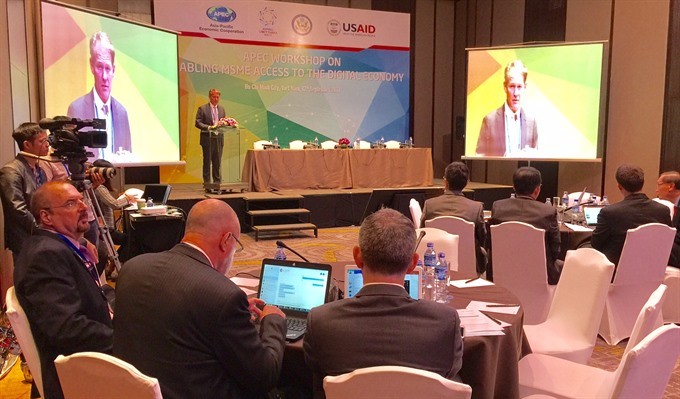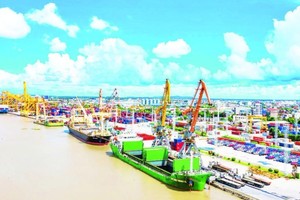
The challenge for MSMEs is to improve their capabilities and incorporate new strategies, skills and technologies to fully take advantage of the opportunities, participants at the workshop, organised by the US State Department, said.
Jillian DeLuna, foreign affairs officer in the State Department’s Bureau of East Asian and Pacific Affairs, said: “MSMEs face difficulties in advancing their operations through the digital economy such as difficulty in accessing the internet and broadband, security and privacy, among others.”
The digital economy action plan endorsed by the MSMEs Ministers in 2015 and a workshop in 2016 on developing best practices and recommendations to improve access to the digital economy are critically important efforts to the MSME working group, according to the official.
“We hope today’s workshop will increase APEC’s MSME’s policymaking knowledge and understanding on two issues: utilising the pool of information and fostering MSME’s access to digital literacy,” she said.
Mark Walter, deputy chief of party for the US-APEC Technical Assistance to Advance Regional Integration, said: “We are working closely with the US government to provide technical assistance to the APEC Secretariat, upcoming host economies and a developing number of APEC economies.
“Today’s workshop welcomed three non-APEC and ASEAN members: Cambodia, Laos and Myanmar. We seek to brainstorm ways for economies to advance policies that contribute to improving accessibility to the digital economy,” he said.
The workshop discussed digital literacy in APEC, as well as case studies of successful initiatives that promote the development of locally relevant content, applications and services to ensure social and economic value of the digital economy to consumers and businesses across the region.
It also discussed policies and strategies that enable the free flow of information across borders, and open and competitive market places, as well as key challenges and constraints for MSMEs in implementing access to the digital economy.
Speaking on the sidelines of the workshop, Brian Scarpelli, senior policy counsel for ACT The App Association, said: “Some of the challenges that MSMEs face are regulations which are not responsive to proven harms; in other words, attempts to regulate areas of the economies that are not yet developed. Regulations enacted by APEC members should be aligned with proven harms to consumers.”
"Localisation is another barrier, which prevents MSMEs from other areas of the APEC region from entering, and more importantly, stifles local growth of MSMEs," he told Việt Nam News.
Potential
The digital economy and e-commerce are opening up great opportunities to MSMEs, as the internet has spawned many new businesses, creating wealth for a myriad of entrepreneurs and technology experts and amateurs.
But it has also caused digital disruptions of long-established business models, according to the APEC Policy Support Unit. Surveys show that MSMEs that use the internet grow at a faster rate than those that do not, according to the Support Unit.
“It is estimated that B2B e-commerce sales will reach US$6.7 trillion globally by 2020,” according to a report from the GlobalWebIndex, a technology company that provides audience profiling data to publishers, media agencies and marketers around the world.
Likewise, “three in four internet users are now online using mobile, and, globally, there are 1 billion monthly online shoppers across GlobalWebIndex’s 32 markets”, the company said.
According to figures released in 2015 from GlobalWebIndex, at least 27 percent of internet users are making purchases via PCs as well as mobiles or tablets.
“This is a huge potential market for MSMEs. We must remark that MSMEs account for over 90 per cent of all enterprises in every APEC economy and employ more than half of the workforce,” the report said.
The internet helps expands the market for MSME products, provides market intelligence, and improves efficiency, it said.
The workshop, which was aimed at MSMEs, startups and policymakers, was held to foster e-commerce as a strategy to increase participation in regional and global markets, thus creating new jobs, economic growth and better quality of life.
























